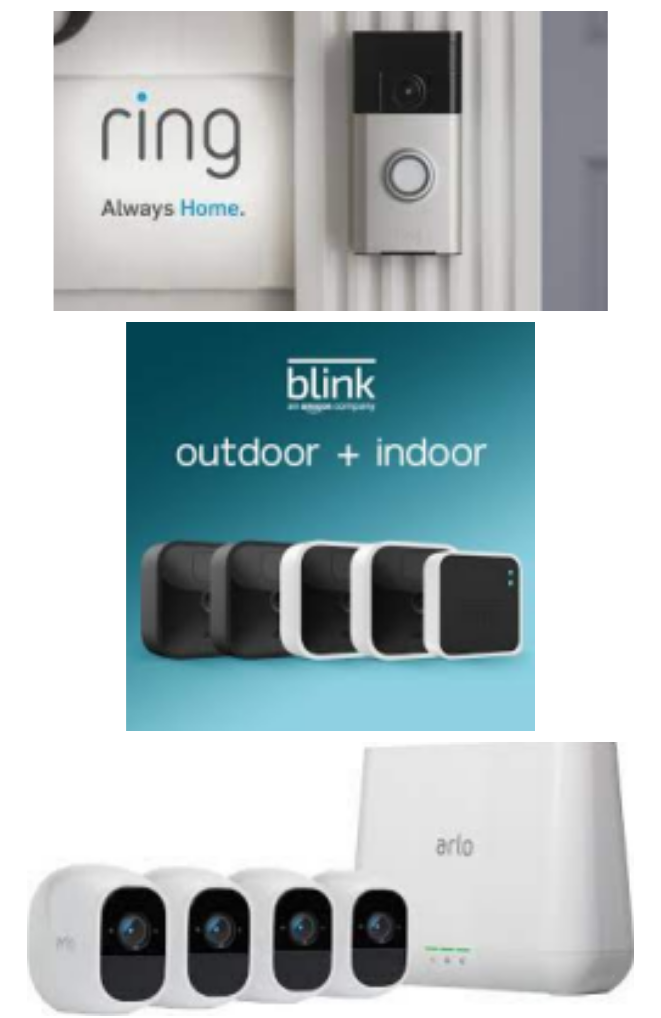Is Your Home Surveillance System Invading Other People’s Privacy?
Anonymous | June 26, 2022
If you are not disclosing to your guests that you have a Wi-Fi security camera in your home, you are invading their privacy – and may even be breaking the law. These home security systems record, listen, and watch over any guests that one might have, and they are all different forms of surveillance.

Privacy and Consent In Homes
Although one may feel entitled to protect and watch over what goes on in their home at all times, this is a case of lost autonomy. Without consent, guests in your home can feel unsafe, creeped out, and outright uncomfortable. These at-home surveillance systems “violate basic privacy and civil rights protections by illicitly filming innocent residents [and guests] without any knowledge” [1]. What constitutes consent when in someone else’s property? Under the Belmont Report, research on human subjects must abide by “the requirement to protect those with diminished autonomy” [5]. While home Wi-Fi security camera systems do not fall under research, this notion of autonomy should be practiced regardless. Companies and homeowners alike should be held accountable for withholding certain privacy standards. In particular, Wi-Fi camera recording is subject to “‘reasonable expectation of privacy’ guidelines under privacy law” [4]. In homes, privacy laws get a little blurry. According to Wirecutter, one “can’t record video in any location where a person would expect to have a high degree of privacy.” But, what qualifies as a “high degree of privacy”? This might mean different things to different people. To
theorist Robert Post, “privacy is a value so entangled in competing and contradictory dimensions, so engorged with various and disting meanings” [2]. For instance, most would quantify a bathroom, bedroom, or anything on one’s personal property as a “high degree of privacy,” although many others might not agree with that. Here, we can see how the jargon within privacy law can blur the lines as to what constitutes privacy.
Data Collection
In terms of the information collected through Wi-Fi security cameras, companies such as Ring, Blink and Arlo follow an almost identical data collection process. Wi-Fi security camera users might expect that only the information they provided these companies with such as name, email address, phone number, address, etc. – is collected or used – however, these companies also monitor what goes on in one’s home, the same way homeowners do. Not only do owners of Wi-Fi home camera systems and companies have access to what goes on within and outside one’s home, but third parties and affiliates do as well. This access may include one’s profile information, audio and video recordings of one’s home, and surrounding areas captured.
Namely, Ring’s privacy notice indicates they collect “content (and related information) that is captured and recorded when using our products and services, such as video or audio recordings, live video or audio streams, images, comments, and data our products collect from their surrounding environment to perform their functions (such as motion, events, temperature and ambient light)” [3]. More recently, Ring has been under investigation for partnering with multiple police stations to “minimize crime” [1]. Despite the intent of upholding a safe community, widespread devices such as at-home surveillance cameras partnering with local police stations carries Big Brother-esque energy; one is not safe or kept from being watched, even in their own homes. Even though one might think that they are in full control of their home surveillance system, unfortunately, this is not true.

Is This What You Want?
The next time you are thinking about purchasing a Wi-Fi home surveillance system, review the pros and cons of having a monitoring device like Ring, Blink, or Arlo (i.e. consider all the data that might be collected by these devices, let your guests know that they are being kept under surveillance during their time in your home). Is the data collection, tracking, and control worth the price of yours and your guests’ privacy, autonomy, and safety?
References
[1] Yeager, (2020). Ethics, C. for D., Avenue, P. of L. U. C. · 820 N. M., Chicago, & Disclaimer 2022. (n.d.). Amazon’s Ring Doorbell Rings In New Privacy Violations: Center for Digital Ethics & Policy: Loyola University Chicago. Retrieved June 26, 2022, from https://www.luc.edu/digitalethics/researchinitiatives/essays/archive/2020/amazonsringdoo rbellringsinnewprivacyviolations/
[2] Mulligan, D. K., Koopman, C., & Doty, N. (2016). Privacy is an essentially contested concept: A multi-dimensional analytic for mapping privacy. Philosophical Transactions of the Royal Society A: Mathematical, Physical and Engineering Sciences, 374(2083), 20160118. https://doi.org/10.1098/rsta.2016.0118
[3] Privacy Notice. (n.d.). Ring. Retrieved June 24, 2022, from https://ring.com/privacy-notice [4] Security Cameras, Ethics, and the Law. (2016, September 23). Wirecutter: Reviews for the Real World.
https://www.nytimes.com/wirecutter/blog/security-cameras-ethics-and-the-law/ [5] The Belmont Report. (n.d.). 10.
